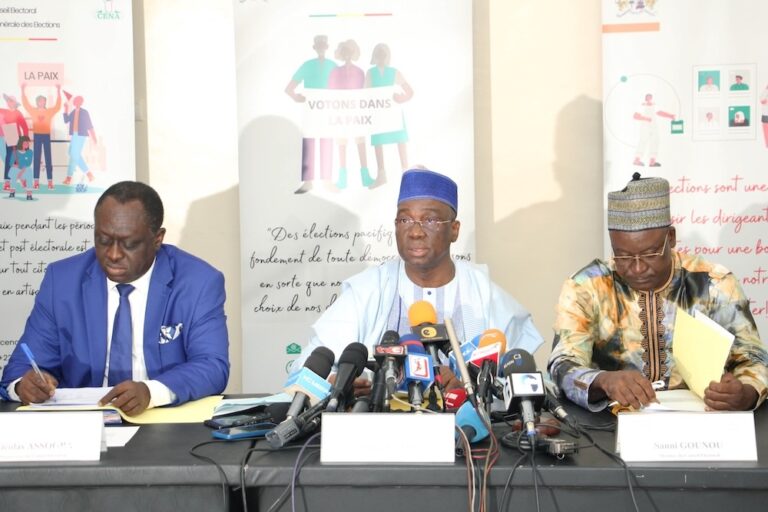(RSF/IFEX) – Reporters Without Borders expressed shock at a six-month prison sentence handed down to publisher Clément Adéchian and editor Cécil Adjévi, of the privately-owned daily “L’Informateur”, together with a fine of 500,000 FCFA (752 euros) for “defamation”. The two journalists were arrested and sentenced on 1 December 2006 on the basis of a complaint […]
(RSF/IFEX) – Reporters Without Borders expressed shock at a six-month prison sentence handed down to publisher Clément Adéchian and editor Cécil Adjévi, of the privately-owned daily “L’Informateur”, together with a fine of 500,000 FCFA (752 euros) for “defamation”.
The two journalists were arrested and sentenced on 1 December 2006 on the basis of a complaint from a bailiff, Maxime Bankolé, who had been accused of rape in an edition of “L’Informateur”, an accusation for which the journalists were unable to produce any evidence.
They were immediately taken to the Cotonou civilian prison and their lawyer has appealed against the sentence.
“Apart from the fact that it [adds] a political aspect to something which was just a crime story, the severity of this sentence does not in any way constitute an appropriate response to a journalistic mistake,” the worldwide press freedom organisation said.
“We have said it often enough: the supervision of the press should be left to media regulatory bodies and not to the criminal justice system, because prison has a symbolic meaning [whose] effectiveness is inversely proportional to the punishment [meted out by peers]. Since this is the second case in which journalists have been imprisoned since Boni Yayi became president, we believe it is time to reform the law,” it added.
In a statement released on 4 December, the national council of press and broadcast employers (CNPA) and the Benin journalists’ union (UPMB) said that it was “always bad for the image of our country and for the consolidation of our democracy to send journalists to prison just for articles they have written” and they appealed for “leniency from the judicial authorities and the understanding of the political authorities.”


